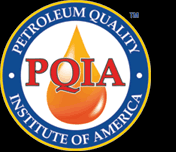
The independent resource for information and insights on the quality and performance of lubricants in the marketplace.

Petroleum Quality Institute of America conducts independent testing of consumer, commercial, and industrial lubricants. The following is a summary of PQIA's sampling, testing, reporting methodology, and protocol.
The Petroleum Quality Institute of America selects and tests 5 to 10 brands of lubricants a month. These samples are selected randomly by region. This includes lubricants with and without API certification.
In addition to random samples, many oil manufacturers are proud of the quality of their products and are anxious to have their oils sampled, tested, and published by PQIA without waiting for their oil to be randomly selected. To assure all manufacturers have an opportunity to have their brands tested and results posted on this website, PQIA will test any specific oil upon request by the oil's manufacturer provided the manufacturer pays for the sample collection, testing, and administrative costs. Please contact us for more information.
PQIA Supporters are subject to increased scrutiny and have agreed that PQIA may proactively sample their brands from the field for testing and publication.
All oils tested by PQIA are collected from the field by PQIA, independently tested, and all results are published on this website without influence from the manufacturer of the brand, PQIA Supporters , or any other industry party.
All samples are collected by PQIA's staff. Our staff includes personnel with thirty years of experience in the lubricants business and over five years experience in the field of lubricant testing and laboratory management.
PQIA submits samples to an independent laboratory for testing. In addition to the samples submitted to the laboratory, PQIA maintains samples (retains) from the same batch tested.
Whereas PQIA is aware that expensive engine testing is required to determine if an oil meets a particular API Service Classification, it also understands there are specific chemical and physical tests required to determine if an engine oil meets an API Service. The bars for these tests are set by the API. And if engine oil does not meet the requirements of these tests, it does not meet the requirements of the designated API Service Category, regardless of how it performs in the engine tests. Tests PQIA looks at in this category include:
The second group of chemical and physical tests examined by PQIA includes tests where, although there are no specific API requirements, the test data can be used to determine if a product is typical of what one would expect to see in a particular API service category. As an example, whereas the API does not specify a requirement for calcium, calcium is considered an integral and critical part of an engine oil’s additive package. As such, an engine oil meeting API SM Service Classification would typically contain calcium in the range of 1,600 to 2,400. This contrasts sharply with a typical API SA engine oil containing virtually no calcium.
Samples are retained for six months. Any questions concerning the data presented for a given sample must be made known prior to the retain period.
Should a lubricant manufacturer have independent test data (bench or engine) that shows its lubricant offers higher quality and/or performance than others, we welcome this information and remain prepared to publish it on this website if and when provided.
Laboratory test results are reported as received. Prior to posting any data that falls outside of the API requirements for a specific API Performance Classification, PQIA will request a recheck of the data.
Similarly, PQIA also request laboratory rechecks for any tests results not specified by API that appear to be atypical of the norm. In addition, we make every effort to contact the lubricant manufacturer to determine if they are using a unique additive package, and/or other technology that would explain the apparent anomaly.
The Petroleum Quality Institute of America reports data on the products tested. In addition, we provide the public with the information and insights they need to make informed decisions about the quality and performance of lubricant brands based on the data.
The Petroleum Quality Institute of America is able to serve buyers and consumers of lubricants in part through the generous support of our Supporters . Please contact us at the link below if you too would like to sponsor PQIA's efforts to help assure the quality of lubricants in the marketplace. Request Supporters hip Information